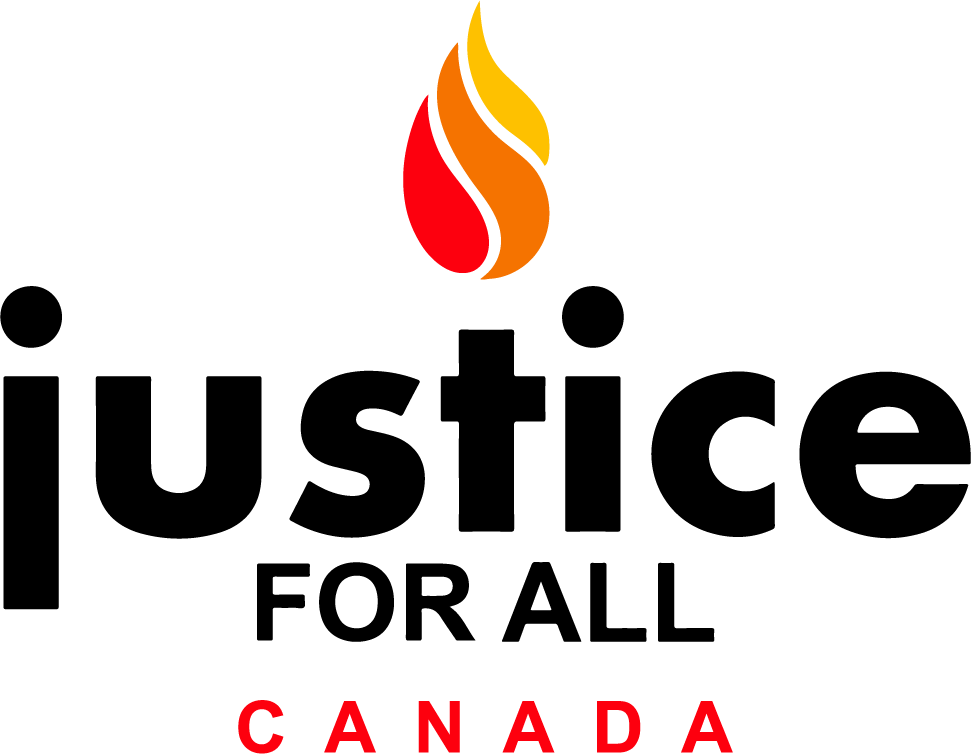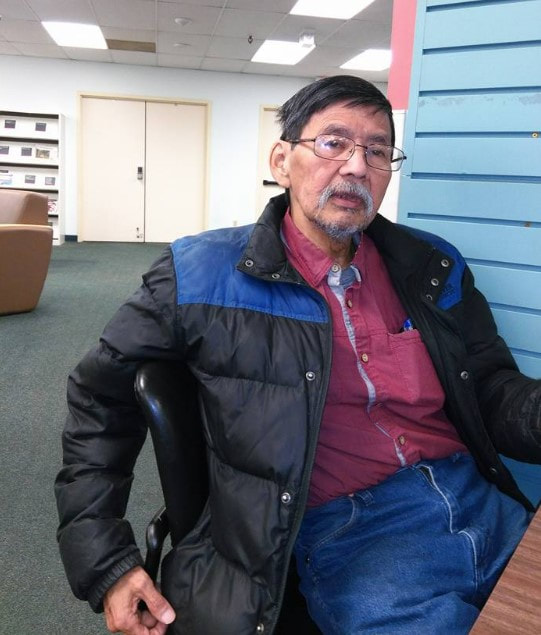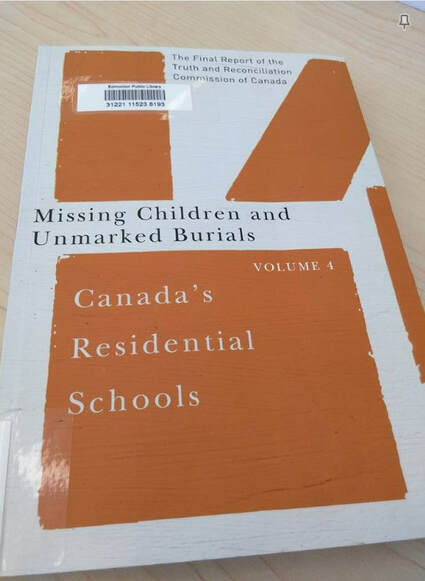|
The following essay was written by Tazeen Hasan, as part of a Harvard assignment in 2017.
"Anytime I passed someone, anytime I hit someone during my play at hockey or skiing, it would be John Comeau," says Harold Cook, 68, a residential school survivor who was sexually assaulted by Comeau, a supervisor at Grollier Hall Residential School in Northwest Territories. Sporting a dark pink shirt and a snow jacket, with wrinkles on his face, he talks firmly and slowly. "RCMP [police] caught me from a fishing camp when I was thirteen," he says. Cook was born in Fort Smith, a town in Northwest Territories, in 1949. He was flown to Grollier Hall Indian Residential School in Inuvik, 3588 kilometers from his hometown. "My parents could be jailed if they had refused to send me," he adds. Between 1867 and 1996, some 150,000 Aboriginal children were sent to residential schools across Canada as the government and missionaries agreed that in order to "civilize and Christianize" them, it was necessary to separate them from their parents and their home communities, says the Truth and Reconciliation Commission report, which published the six-year official investigation after interviewing 7000 survivors from these schools. Cook says that discipline at school was harsh and abusive. "We would get a slap if we spoke our language. Latin was the only language we were allowed to speak," says Cook. Students were constantly indoctrinated at school, "We were made to hate our culture and parents," says Cook. "To maintain discipline, runaway children were beaten with a leather strap, like criminals were flogged in the olden days," says Cook. The TRC report says bare-buttock thrashing in front of other children was a common practice in these schools. "Even the legal system supported corporal punishments," it adds. "He used to read stories for us before bedtime. I remember him staring at me while the boys were taking a bath in the common shower room," says Cook. "At night, he grabbed me outside the bathroom and assaulted me in his bedroom," says Cook. Victims rarely reported these incidents, but Cook reported to Father Max Ruyant Omi, the school principal, and Sister Gilbert, but he was not believed. “They said people of God do not do bad things," says Cook. Despite being a good ice hockey player and skier, Cook became a victim of self-misery and began using drugs. "I carried this shame and guilt for another 35 years," says Cook. But his trauma did not stop him. He joined the University of Alaska and was selected for the cross-Canada ski team. He left the university to avail an offer to join an ice hockey team in Sweden and remained there for the next four years. He finally decided to testify against his abuser in 1998. Four Grollier Hall supervisors, including Comeau, were finally charged and convicted of sexual abuse after multiple victims came forward. "It was painful for him [Cook] to speak of what happened that night," says Theodore Fontaine, author of the memoirs (singular) Broken Circle: The Dark Legacy of Residential Schools. Fontaine was Cook's friend who himself began attending a residential school at the age of seven, and faced sexual assaults throughout his stay by the staff. "The memories of those nights always haunt us," says Fontaine. "Healing never stops." Cook joined TSOW-TUN LE LUM Society, an Aboriginal-run healing center in British Columbia, to seek help for his never-ending mental trauma. Gradually, he left drugs and to this day, he is sober now. However, his medical reports show he still suffers from post-traumatic stress disorder. "I will never be healed, but I shall continue with my own healing journey until I leave this world," he says with a sigh. Cook’s journey certainly did not end here. Despite his perpetual psychological problems, he dedicated himself to supporting residential school victims, the survivors say. Cook worked as a crown witness coordinator with RCMP [police] to assist victims of sexual assault and abuse from 1998 to 2015. During this period, Cook worked with hundreds of survivors in the provinces of the Northwest Territories, Alberta, British Columbia, Manitoba and Saskatchewan. Over the years, he has closely monitored the prosecutions of abusers, healing societies' politics and the intergenerational impact of residential schools. "He [Cook] showed me a path of forgiveness. He taught me how to live," says Roxane Landry, who says her three generations suffered in residential schools. Cook says that the next generations of survivors who are not direct victims of the residential school system are also experiencing psychological problems. "We transferred our trauma to our children as we do not know how to be a parent," he adds. Rising suicide rates in First Nations children are linked to the generational impact of residential schools, says Cook. "Survivors believe that love and discipline come from the fist." According to a study by Canada's national statistical agency, Statistics Canada, one in five aboriginal people have suicidal thoughts at some point in their lives. Actual suicide rate may be much higher as this study does not include the communities on Reserves. Cook says he feels pride that he left drinking and is now a good model for his grandson. He is grateful that he has grandchildren to whom he presents the annual government compensation he receives as a victim. Commenting on the recent Conservative Senator Lynn Beyak statement, who said that the TRC report overshadowed the "good deeds" of "well-intentioned" residential school workers, such as converting some of the students to Christianity, Cook says that these indifferent statements "support a genocide" and are "nothing but revictimization." Cook says reconciliation for him is the right to be believed. "My only solace lies in the fact that someone in authority finally believes me," he adds. |


